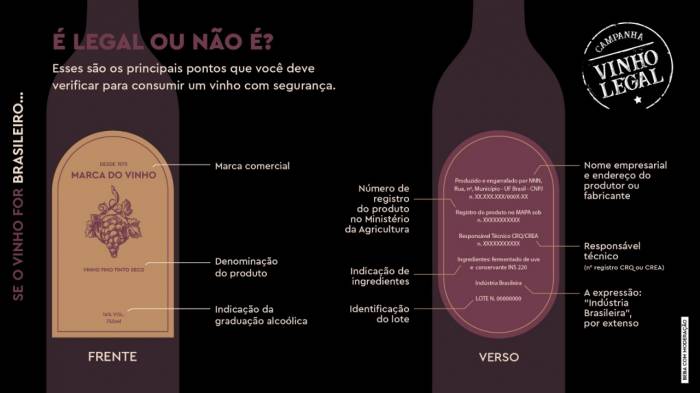44,000 Liters of Counterfeit Wine Seized in Brazil Amid Surge in Clandestine Sales
New campaign urges consumers to scrutinize labels as authorities crack down on illegal wine and promote industry transparency
2025-11-24

A campaign to raise awareness about clandestine wines is gaining momentum in Brazil as the Consevitis-RS, a council representing the state’s wine sector, intensifies its efforts through the Vinho Legal initiative. The group has released new infographics aimed at helping consumers identify wines with guaranteed origin and quality. The campaign emphasizes the importance of carefully reading both labels and back labels to avoid health risks and support the formal wine industry.
The issue has become more pressing as wine remains one of the most frequently counterfeited plant-based products in the country. According to data from the Ministry of Agriculture, Livestock and Food Supply (Mapa), authorities seized 44,000 liters of irregular beverages between January and August 2025 alone. This figure highlights the need for consumers to be vigilant when purchasing wine.
For Brazilian wines, regulations require that the label display the commercial brand, product denomination, and alcohol content. The back label must include full details about the producer, address, Mapa registration number, ingredients, batch number, technical manager, and the phrase “Indústria Brasileira.” Imported wines may have labels in a foreign language, but their back labels must be translated into Portuguese and show the country of origin, manufacturer, importer (with CNPJ), and Mapa registration number.
Checking these elements ensures that the wine was produced and sold according to legal and sanitary standards. Missing or incomplete information can indicate a clandestine product that lacks quality control, posing risks to consumers and harming legitimate producers.
Luciano Rebellatto, president of Consevitis-RS, says that choosing legal wine strengthens the entire sector. He notes that when consumers check labels, they help fight informality and support those who follow proper procedures. The campaign underlines that information is a form of protection: it reduces risks for buyers and contributes to a fairer and more transparent market.
Educational materials are being shared on social media platforms and through news outlets to broaden the campaign’s reach. Launched in 2025, Vinho Legal brings together wine industry organizations as well as public and private institutions to combat illegal sales. The initiative encourages responsible consumption, food safety, and appreciation for wines produced within legal guidelines.
Founded in 2007, Vinetur® is a registered trademark of VGSC S.L. with a long history in the wine industry.
VGSC, S.L. with VAT number B70255591 is a spanish company legally registered in the Commercial Register of the city of Santiago de Compostela, with registration number: Bulletin 181, Reference 356049 in Volume 13, Page 107, Section 6, Sheet 45028, Entry 2.
Email: [email protected]
Headquarters and offices located in Vilagarcia de Arousa, Spain.